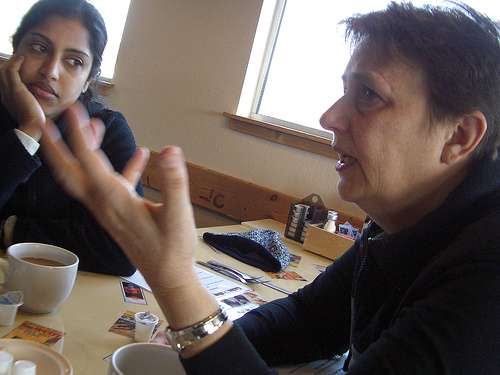The current health care debate is a conversation that is not going to make us any healthier. It is the wrong conversation. To begin with, it is not about health care; it is really a polarized discussion about the economics of disease care. It is mostly focused on medical systems and their services. It is about access to the services, cost control of services, and who in the medical services industry gets the money.
None of that has much to do with how healthy we are. It pretends that there is a relationship between our health and how much we spend on medical services. Not so. The United States spends 40 percent more money per capita on medical services than any other country in the world. Other countries that spend less than we do are well ahead of us on most measures of health, such as infant mortality, incidence of major diseases, and life expectancy. It is the medical industrial complex that sells the idea that more services equal better health. This is the basic illusion of the consumer society: everything can be bought and the more you pay the better the outcome. Only about 10 percent of our health can be attributed to medical services. Most of our health is determined by the environment we live in, our family history with disease and our own behavior. What we eat, the stress in our lives, our exercise habits and our connectedness with other human beings are more decisive than anything the health care system can do.

We know all this. The question is, what does it take to act on it? This is the conversation that we should be having. How do we create a neighborhood that supports healthy habits such as food intelligence and social connectedness? How do we deal with the health effects of low education and low income? The medical system can't help with any of this. More research is not needed. What is needed is a conversation about building local social fabric.
The health of a community improves when local citizens create small groups of people that meet regularly to give each other the education, strength and support to be disciplined about their health. This is what changes personal behavior: small groups, not more purchased services. We already have all the knowledge and resources we need to stay healthy, right where we live. All at low cost and walking distance.
This equation is true for a local economy, for raising a child, for caring for the vulnerable, and it is true for our health. Social fabric produces outcomes. To keep talking about where the money will come from and who gets it just expands the disease care system and distracts us from being healthy, which, after all the shouting, remains in our own hands and in the hands of our neighbors. This is what a competent, connected neighborhood is good for. This is what is creating health around the globe. This is the real news and the right conversation.
John McKnight is emeritus professor of education and social policy and co-director of the Asset-Based Community Development Institute at Northwestern University. He is the co-author of "Building Communities from the Inside Out" and the author of "The Careless Society." He has been a community organizer and serves on the boards of several national organizations that support neighborhood development. Peter Block is founder of Designed Learning. They are coauthors of "The Abundant Community: Awakening the Power of Families and Neighborhoods" (Berrett-Koehler).
For more commentary from McKnight and Block, visit their website, www.AbundantCommunity.com.